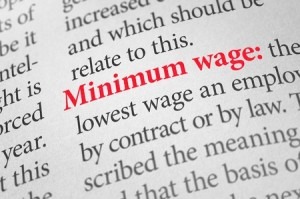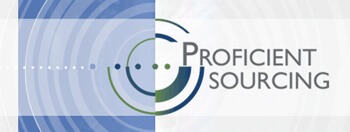Raising the minimum wage appears on the political agenda every now and again. There are some who believe a major increase in the minimum wage is an important weapon in the inequality battle. It’s clear the minimum wage, if changed significantly, will have many effects, so what’s the real story?
Let’s start with this July 2016 report from Journalist’s Resource:
 “A 2013 paper for the National Bureau of Economic Research, “Revisiting the Minimum Wage-Employment Debate: Throwing the Baby Out with the Bathwater?” casts doubt on some of the existing research methods and data modeling that economists have used. The paper’s authors…find that the overall evidence “still shows that minimum wages pose a tradeoff of higher wages for some against job losses for others.” These scholars have written previously that, in the short run, minimum wage increases both help some families get out of poverty and make it more likely that previously non-poor families may fall into poverty”.
“A 2013 paper for the National Bureau of Economic Research, “Revisiting the Minimum Wage-Employment Debate: Throwing the Baby Out with the Bathwater?” casts doubt on some of the existing research methods and data modeling that economists have used. The paper’s authors…find that the overall evidence “still shows that minimum wages pose a tradeoff of higher wages for some against job losses for others.” These scholars have written previously that, in the short run, minimum wage increases both help some families get out of poverty and make it more likely that previously non-poor families may fall into poverty”.
“The Bureau of Labor Statistics further notes that in 2015: “Minimum wage workers tend to be young. Although workers under age 25 represented only about one-fifth of hourly paid workers, they made up about half of those paid the federal minimum wage or less. Among employed teenagers (ages 16 to 19) paid by the hour, about 11 percent earned the minimum wage or less, compared with about 2 percent of workers age 25 and older.”
“Among the extended primers worth considering is the 2014 book “What Does the Minimum Wage Do?” by Dale Belman of Michigan State University and Paul Wolfson of the Tuck School of Business at Dartmouth. That work synthesizes some 200 papers. In their conclusion, they write:
“Evidence leads us to conclude that moderate increases in the minimum wage are a useful means of raising wages in the lower part of the wage distribution that has little or no effect on employment and hours. This is what one seeks in a policy tool, solid benefits with small costs. That said, current research does not speak to whether the same results would hold for large increases in the minimum wage.”
And another thought-provoking paragraph:
“At the ground level, this all [several cited studies] suggests that a small firm in a low-wage region might, for example, respond to an increase in the minimum wage by having the owner pick up more hours herself and cut back on an employee’s overtime hours. A large firm might likewise try to squeeze more work out of its salaried managers and hire more part-time workers, to avoid benefits obligations.. The lesson here is to distrust sweeping generalizations about what might result from a minimum-wage increase within the national labor market as a whole.”
Beyond those directly affected by a minimum wage, there are other factors that should be taken into account. Among those:
-Many hourly wage structures are built with specific gaps between the various wage levels. In general, these gaps exist to incentivize people to move up. Each wage level usually entails more valuable responsibilities. Therefore, a big increase at the bottom will cause a significant upward ripple effect throughout the entire hourly wage structure.
 -As the cost of labor increases, increased use of automation (to replace labor) is more easily cost-justified.
-As the cost of labor increases, increased use of automation (to replace labor) is more easily cost-justified.
-Firms with significant labor costs will obviously be squeezed. There is no force that will decrease costs, so the price of manufactured goods must increase. This cannot be all good, especially where cheaper labor foreign competition is involved.
-If it turns out that a large and abrupt increase in the minimum wage causes a noticeable drop in employment, it will obviously not help income inequality. In fact, it could increase inequality by creating more folks at the bottom—those that lose jobs due to the minimum wage increase. Both sides of this issue have considerable supporting documentation.
So—in conclusion (for now) we can see this is a far more complex issue that contemporary political reports would suggest. The Journalist’s Resource article has a good deal more information and further references on this subject: The Journalist’s Resource

